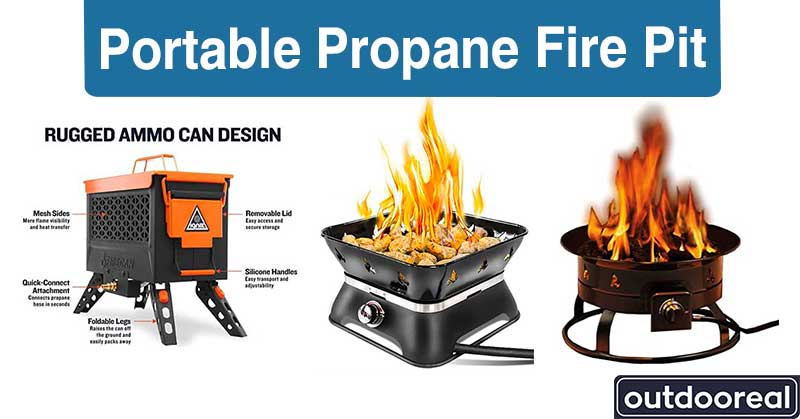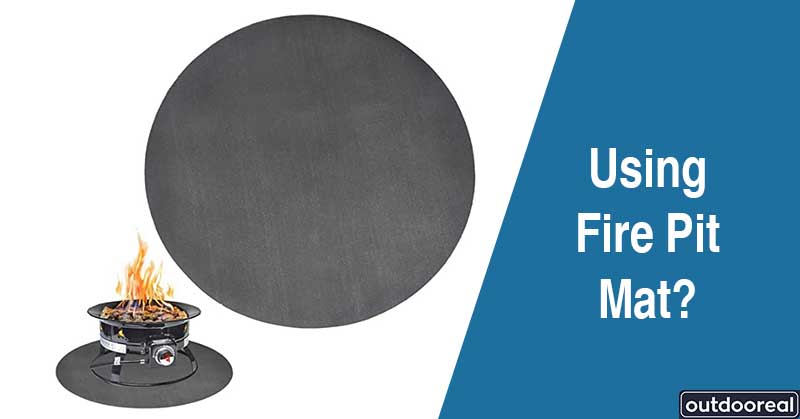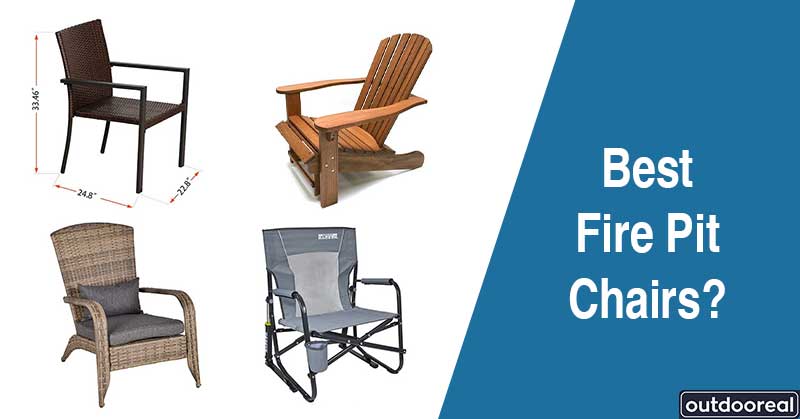Health hazards, toxic gas inhalation, fire disasters, etc., are some risks of utilizing a patio heater without safety precautions or in the wrong place. Unlike a fire pit, chiminea, or fireplace, a patio heater is considered safer due to its build-up and safety structure; however, not following the manufacturer’s instructions can still lead to dangerous health hazards and disasters.
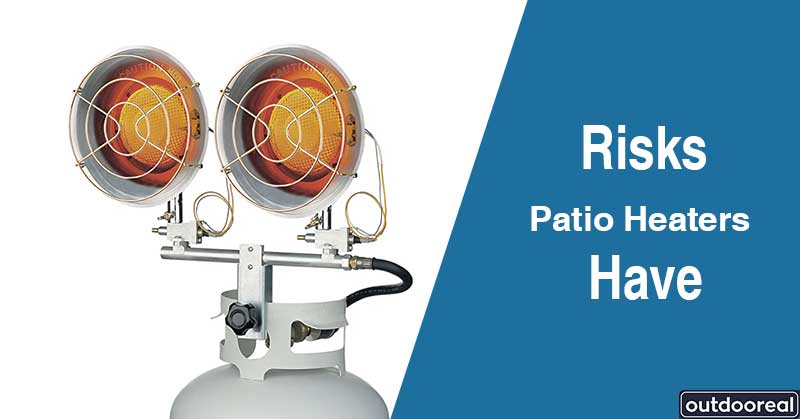
Risks of Using a Patio Heater
A patio heater is not recommended indoors; however, people may still use a patio heater under a covered porch, gazebo, or even indoors. Here, we have described the threats of using patio heaters for two different cases;(indoor and outdoor)
a. Risk For Indoor Use
Patio heaters are designed for outdoor use and should not be used in an enclosed space. Electric patio heaters are suitable for use under a covered porch, gazebo, or tent, while propane or gas patio heaters are dangerous for use indoors. Here are some hazards that might happen if you use the patio heater indoors;
Toxic gas inhalation and health hazards:
This will happen if you use a propane or gas patio heater in a poorly ventilated space or under a covered place. Carbon monoxide is a by-product of burning natural gas, which will cause severe health hazards. Inhaling this toxic gas for a long time will affect the family members’ health and cause suffocation and, worst case, death.
Fire disasters and accidents:
If you use a propane or gas patio heater indoors, the probability of experiencing a fire disaster will increase. This is because people tend to have flammable substances, such as cloth, furniture, paper, etc., which are easier to come in contact with the heater and cause a fire. Also, propane and electric heaters may tip over and cause the rug or carpet to catch fire.
Another risk is storing a gas cylinder indoors or near an exit point. As you may already know, storing cylinders in the wrong place may cause the cylinder to burst and cause fire hazards. Also, if there is any leakage or problem in the gas connection, the whole house may burn due to this practice. While you can better control the disaster if the gas leak or fire occurs outside.
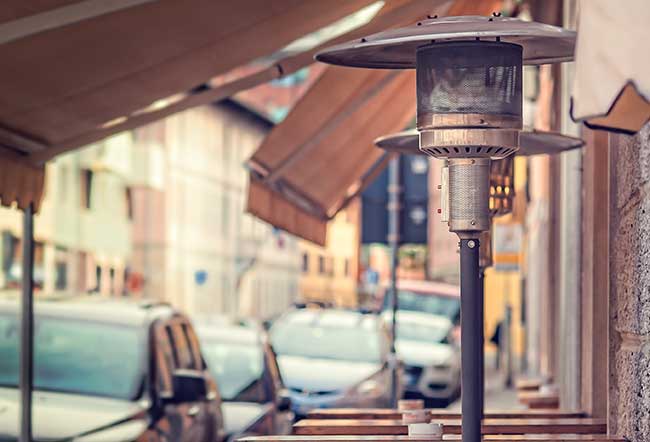
B. Risks for Outdoor Use
Patio heaters are made to be used outside, so there are far fewer benefits to using one outside than one inside. However, a fire feature always poses some risk if no precautions are taken.
If the patio heater is placed improperly or on an uneven surface, for example, over a slope or on grass, it may tip over and burn your lawn. In addition, flammable substances may catch fire if you use a table and other seating furniture too close to the heater. Another risk is using your heater directly under a tree, posing fire threats. Finally, if the heater is not correctly installed and maintained, it can pose a danger at any time. The National Fire Protection Association (NFPA) says that many accidents happen because patio heaters are not properly set up or taken care of.
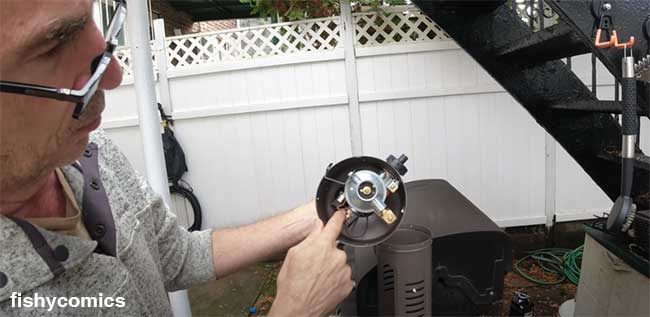
Tips for Maintaining Safety When You're Using a Heater
Patio heaters are considerably safer than fire pits and fireplaces. This does not, however, minimize the likelihood of fire hazards. According to the National Fire Protection Association, the following safety precautions should be taken with different types of patio heaters to reduce the risk of fire:
Gas or propane patio heaters
- A minimum of three feet of distance must be maintained from flammable materials
- Propane patio heaters must have adequate ventilation and should not be utilized in enclosed spaces
- Turn it off when you have finished using it
- Place on a level, smooth surface, and use protective heat pads to prevent tipping over. Never put a propane or gas patio heater under a tree or tent
- According to NFPA 1, cylinders cannot be stored inside a building and must be placed in a well-lit area. Also, the storage of cylinders on the exits is forbidden
- Never place a cylinder or storage heater closer than 5 feet to an exit
- Use a waterproof heater for fixed patio heaters and store the portable heaters inside if possible.
Electric outdoor patio heaters
- You should not use multiplug adapters or extension cords to connect the heater’s cord. It is preferable to use the permanent socket.
- Do not operate patio heaters during a rainstorm or snowstorm
- Never interact with a wet patio heater
- Always place the heater on a level surface to prevent it from toppling over
- Use a waterproof cover to cover it after the heater has cooled down.
Final Verdict
Patio heaters are easy to operate and are considered a safe winter solution. And the most fantastic thing is that patio heaters are surprisingly easy to maintain and clean. Also, they are affordable and portable. Yet, you should know about the possible threats and hazards of using a patio heater if you plan to purchase or utilize one. Following the safety tips and using the product by maintaining the manufacturer’s instructions will guarantee safety and increase the product’s lifespan.





